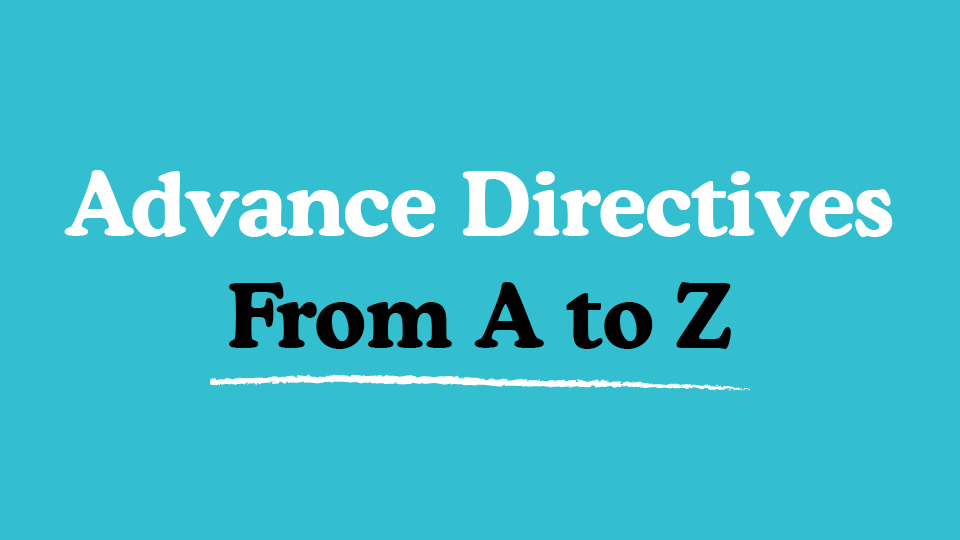AzHDR Can No Longer Accept Previous Secretary of State Healthcare Registry Registration Agreements. Read More

We’ve summarized an alphabet’s worth of helpful information to help you navigate your way through advance care planning.